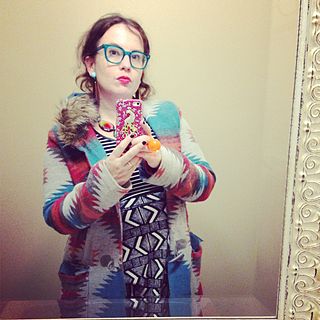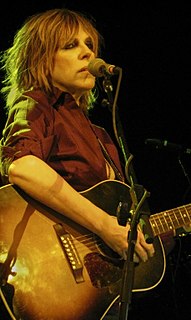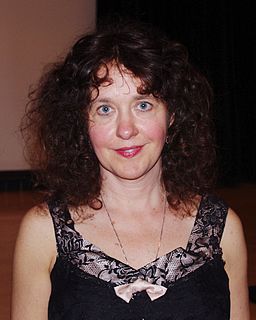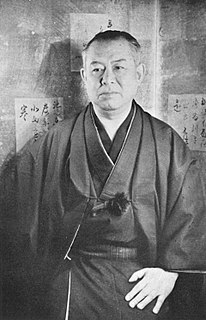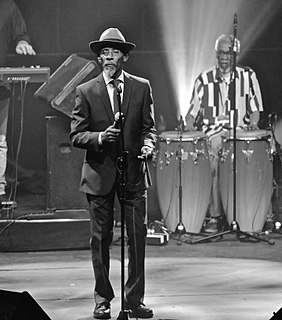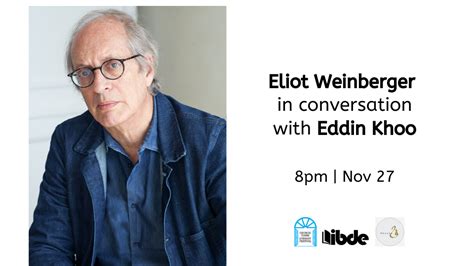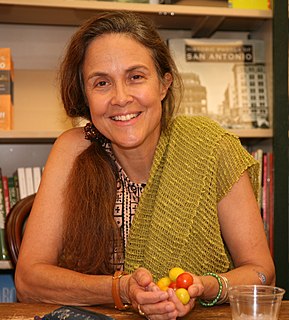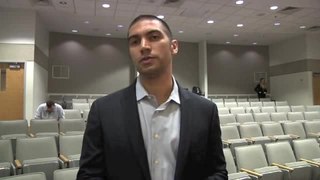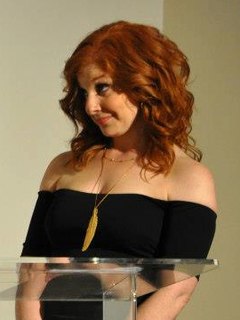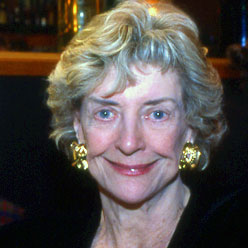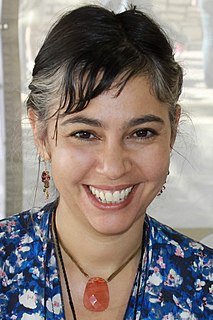Top 1200 Writing Poems Quotes & Sayings - Page 6
Explore popular Writing Poems quotes.
Last updated on April 21, 2025.
I do believe that one's writing life needs to be kept separate from Po-Biz. Personally, I deal with this by not attending too many poetry readings, primarily reading dead poets or poems in translation, reading Poets & Writers only once for grant/contest information before I quickly dispose of it, and not reading Poetry Daily. Ever.
Emily Kendal Frey's The Grief Performance is a book that condenses a journey of finding and re-finding loss into beautiful packages. The packages are the poems and they sit shiny and new on every page of this fabulous and generous book. I want to go into the world that these poems create, just so that I can be given these terrifying presents again and again. I know you will, too. See you there.
I've not been a prolific poet, and it always seemed to me to be a bad idea to feel that you had to produce in order to get... credits. Production of a collection of poems every three years or every five years, or whatever, looks good, on paper. But it might not be good; it might be writing on a kind of automatic pilot.
It's difficult to talk about [W.S.] Merwin's poems, as it's hard to talk about a feeling or a smell. It is what it is, but so much so that it overwhelms both sense and the senses. I aspire to something about his work, that imbues his poems, though I'm not sure I could say what that is. A purity, maybe, the kind of purity that comes from being beaten, like steel.
... woman is frequently praised as the more "creative" sex. She does not need to make poems, it is argued; she has no drive to make poems, because she is privileged to make babies. A pregnancy is as fulfilling as, say, Yeats' Sailing to Byzantium.... To call a child a poem may be a pretty metaphor, but it is a slur on the labor of art.
I started out in graduate school to be a fiction writer. I thought I wanted to write short stories. I started writing poems at that point only because a friend of mine dared me to write a poem. And I took the dare because I was convinced that I couldn't write a good poem... And then it actually wasn't so bad.
Writing is really just a matter of writing a lot, writing consistently and having faith that you'll continue to get better and better. Sometimes, people think that if they don't display great talent and have some success right away, they won't succeed. But writing is about struggling through and learning and finding out what it is about writing itself that you really love.
With Head Off & Split, Nikky Finney establishes herself as one of the most eloquent, urgent, fearless and necessary poets writing in America today. What makes this book as important as anything published in the last decade is the irresistible music, the formal dexterity and the imaginative leaps she makes with metaphor and language in these simply stunning poems. This is a very, very important achievement.
You honor your writing space by recovering, if you are an addict. You honor your writing space by becoming an anxiety expert, a real pro at mindfulness and personal calming. You honor your writing space by affirming that you matter, that your writing life matters, and that your current writing project matters. You honor your writing space by entering it with this mantra: “I am ready to work.” You enter, grow quiet, and vanish into your writing.
I think the occupation of my poetry is akin to this desire to be many things at once - things that sometimes conflict. Regarding how the quotidian makes its way into the work, it's all of it, in a way. Like, when I'm writing poems, I'm just picking up scraps of whatever is happening around me - a geographical location, a love affair failed, the day the air felt like rope.
[My poems] of course, it's symbolic, in the way that things in a poem can be - that is, pointing to something beyond its mere ordinary meaning, while also retaining all the qualities of that ordinary meaning. In other words, it's a bear, but it's also suggesting something else, just by virtue of the attention to it. But it's not "symbolic" in that way we are taught to think about things in poems.
I've always believed that poetry must speak of realities as least as complicated as those spoken of in prose. I've read books of poems, even single poems, which are, for me, at least the equivalent of a short story or a novel. Martin Amis, in an interview with Saul Bellow in the early eighties, quotes Bellow asking, "Why not address 'the mysterious circumstance of being', say what it's like to be alive at this time, on this planet?" This has been and still is my ambition.
For me, form is something I locate in the process of writing the poems. What I mean is, I start scribbling, and then try to form the poem - on a typewriter or on my computer - and, by trial and error, try to find the right shape. I just try to keep forming the poem in different ways until it feels right to me.
In his writings, Patton was shameless about his ambition to woo Lena to be his bride. He detailed the gradual progress he made, playing music for her on his violin, writing her poems, beguiling her with stories, engaging her in conversation. It was clear that he obsessed over her. He knew what he wanted and never relented until she was his.
Productivity is a relative matter. And it's really insignificant: What is ultimately important is a writer's strongest books. It may be the case that we all must write many books in order to achieve a few lasting ones - just as a young writer or poet might have to write hundreds of poems before writing his first significant one.
I personally believe the role of poets as poets (which is something different from our obligations as citizens, community members, humans) is to write poems. I believe this because I am quite sure poetry can do something no other form or writing, or human activity, can, at least not in such a powerful and distilled and undeniable way. And that we need this type of thinking for our survival as individuals and as a species.
But Carroll's were more convoluted, and they struck me as funny in a new way: 1) Babies are illogical. 2) Nobody is despised who can manage a crocodile. 3) Illogical persons are despised. Therefore, babies cannot manage crocodiles. And: 1) No interesting poems are unpopular among people of real taste. 2) No modern poetry is free from affectation. 3) All of your poems are on the subject of soap bubbles. 4) No affected poetry is popular among people of taste. 5) Only a modern poem would be on the subject of soap bubbles. Therefore, all your poems are uninteresting.
Heartbreak was the impetus to me writing poems and music in the first place. Over the years, I had my heart broken so badly that if I didn't find a way to get all the pain out, I was going to lose my mind. I was crazy! Like, wanting to slash tires and smash car windows. Crazy! I was so hurt that I had to write.
The ancients waited for cherry blossoms, grieved when they were gone, and lamented their passing in countless poems. How very ordinary the poems had seemed to Sachiko when she read them as a girl, but now she knew, as well as one could know, that grieving over fallen cherry blossoms was more than a fad or convention.
I wrote two poems about the 81 uprisings: Di Great Insohreckshan and Mekin Histri. I wrote those two poems from the perspective of those who had taken part in the Brixton riots. The tone of the poem is celebratory because I wanted to capture the mood of exhilaration felt by black people at the time.
The whole process of having to put the thing into the world seems so antithetical to the act of writing. Poetry is slightly easier, because there's less money and fewer people involved. You just let a book of poems trickle out in the world, and it finds its own people. Novels are much harder, and you don't think you should have to do some of the things you're made to do.
On the craft level, writing for children is not so different from writing for adults. You still have to have a story that moves forward. You still have to have the tools of the trade down. The difference arises in the knowledge of who you're writing for. This isn't necessary true of writing for adults.
Poems give us permission to be unsure, in ways we must be if we are ever to learn anything not already known. If you look with open eyes at your actual life, it's always going to be the kind of long division problem that doesn't work out perfectly evenly. Poems let you accept the multiplicity and complexity of the actual, they let us navigate the unnavigable, insoluble parts of our individual fates and shared existence.
When I am writing poetry, I try to make my mind go a little lazy, to not think too much, as a way of opening up the part of the brain that makes poems. If I'm successful in this part of the process I'm often not. If my mind gets too lazy it will linger in familiar boring territory, it's like my mind can stroke the physical world.
During the Gulf War, I remember two little third grade girls saying to me - after I read them some poems by writers in Iraq - 'You know, we never thought about there being children in Iraq before.' And I thought, 'Well those poems did their job, because now they'll think about everything a little bit differently.'
My colleagues in elementary particle theory in many lands [and I] are driven by the usual insatiable curiosity of the scientist, and our work is a delightful game. I am frequently astonished that it so often results in correct predictions of experimental results. How can it be that writing down a few simple and elegant formulae, like short poems governed by strict rules such as those of the sonnet or the waka, can predict universal regularities of Nature?
I have to thank my mother for this. When I was a little boy she used to teach me poems. I would go in church and tell the poems in church for the Easter program, and again for Mother's Day and any occasion she felt would fit. I was very energetic with delivery at that time as a boy, so it stuck with me.
I don't spend time thinking about an aesthetic out of which I create or an ideal toward which my body of work is heading. It's amazing, when I read interviews with other poets, to see how articulately they discuss their own writing, as if they were sharing long-held theories on the work of Pope or Keats. I'm happy enough that I've poured the best of myself into the poems themselves.
[Kenneth Koch] taught children in public schools in New York City to write poems and told them down worry about rhyming, don't worry about any of that stuff. You know, write a poem where you mention three colors and make it five lines - or he would just give them, you know, little strategies. And, man, they wrote some great poems.
A good many of my poems over the years have alluded to or taken on the political. Stevens has a line in one of his essays: "Reality exerts pressure on the imagination." Inevitably what is omnipresent in the culture exerts its pressure on our imaginations to respond to it, even if indirectly. But in this case the backdrop of 9/11, coincident with the breakup of a marriage, the finding of new love, some kind of personal cataclysm... all of those were forces informing the poems in some way.
That was one of things that surprised me so much when I was writing the poems. The contrasts between the haves and have-nots is so complicated. It's financial of course, but it's also the lifestyle choices. The more money people have the further away from each other they often want to be. So while I loved not being hungry and having new gear, etc. I missed the sounds of my neighbors and the kind of generosity people who are struggling together often show.
I have a hard time writing. Most writers have a hard time writing. I have a harder time than most because I'm lazier than most. [...] The other problem I have is fear of writing. The act of writing puts you in confrontation with yourself, which is why I think writers assiduously avoid writing. [...] Not writing is more of a psychological problem than a writing problem. All the time I'm not writing I feel like a criminal. [...] It's horrible to feel felonious every second of the day. Especially when it goes on for years. It's much more relaxing actually to work.
That's one thing brands are understanding is, I'm the blogger who's not writing about fashion. I'm not writing about beauty. I'm not writing about gossip. I'm not writing about politics. I'm writing about all of that. I'm the person they can come to if they just want to reach people who care and have their fingers on pop culture.
When I applied to Stanford, I applied for graduate work in the PhD program, not to the creative writing program, mostly because though I had some vague ambition of becoming a writer and I was trying to write poems and essays and stories, I didn't feel like I was far enough along to submit work to some place and have it judged.
If you are making money writing, you are doing great. If you can support yourself writing, you are a success. I don't care if you're writing textbooks or Pulitzer Prize-winning articles for weighty publications of world renown: If you're writing and it's paying the bills, consider yourself a successful writer.
My colleagues knew I was writing poems. I never hid it from them. I don't think they ever thought I was cheating on them. So, I think they probably saw it as being rather peculiar, that I was doing that sort of thing, but nobody ever suggested I shouldn't be doing it. I think that would be different on Madison Avenue or Wall Street, where you're really expected to be doing 110 percent for the company.
My father is doing a radio program - classical music. He has a beautiful speaking voice and that's his passion in life, his music. My mother lives in Melbourne and is an avid photographer. She's also started writing for a magazine out there and she submits poems, very funny ones, and articles. In some way or other, my family is always doing something with the media.
I was walking every morning, and I'd take my iPod and paper and pen.?As I walked, I wrote a poem, and then I'd come home - and sometimes it's legible, sometimes not - I typed the poem up. So I have a new, yet to be published, collection of poems now. It's called Walker's Alphabet, and among other things, it is about walking. My most recent collection of poems in 2010, incidentally, was titled WALKING backwards.
I believe it's impossible to write good poetry without reading. Reading poetry goes straight to my psyche and makes me want to write. I meet the muse in the poems of others and invite her to my poems. I see over and over again, in different ways, what is possible, how the perimeters of poetry are expanding and making way for new forms.
I began writing poems when I was about eight, with a heavy assist from my mother. She read me Arthur Waley's translations and Whitman and Robinson Jeffers, who have been lifelong influences on me. My father read Keats to me, and then he read more Keats while I was lying on the sofa struggling with asthma.
Once considered an art form that called for talent, or at least a craft that called for practice, a poem now needs only sincerity. Everyone, we're assured, is a poet. Writing poetry is good for us. It expresses our inmost feelings, which is wholesome. Reading other people's poems is pointless since those aren't our own inmost feelings.
I wrote two poems about the '81 uprisings: 'Di Great Insohreckshan' and 'Mekin Histri.' I wrote those two poems from the perspective of those who had taken part in the Brixton riots. The tone of the poem is celebratory because I wanted to capture the mood of exhilaration felt by black people at the time.
A decade ago, my poems were precious little boxes, small and claustrophobic, completely inward gazing. I didn't possess the command to speak beyond the self. Over the years, my poems have stretched out, grown broader and grander. The intervening years of living and aging - with their portions of tragedy, triumph, and shipwreck - have earned me both the authority and the necessity to write on a cosmic scale.
I want to yell about it most days and stop strangers in the street to share my outrage. But my mind is too serpentine to offer instant poem reactions. I can however stand back and examine the deeper ground, or at least that's what I hope my poems are doing. I believe contemplation can be an ethical act and literature can be a profound agent of cultural change, so I hope in some way my poems expand the conversations about environmental decline and social responsibility.

